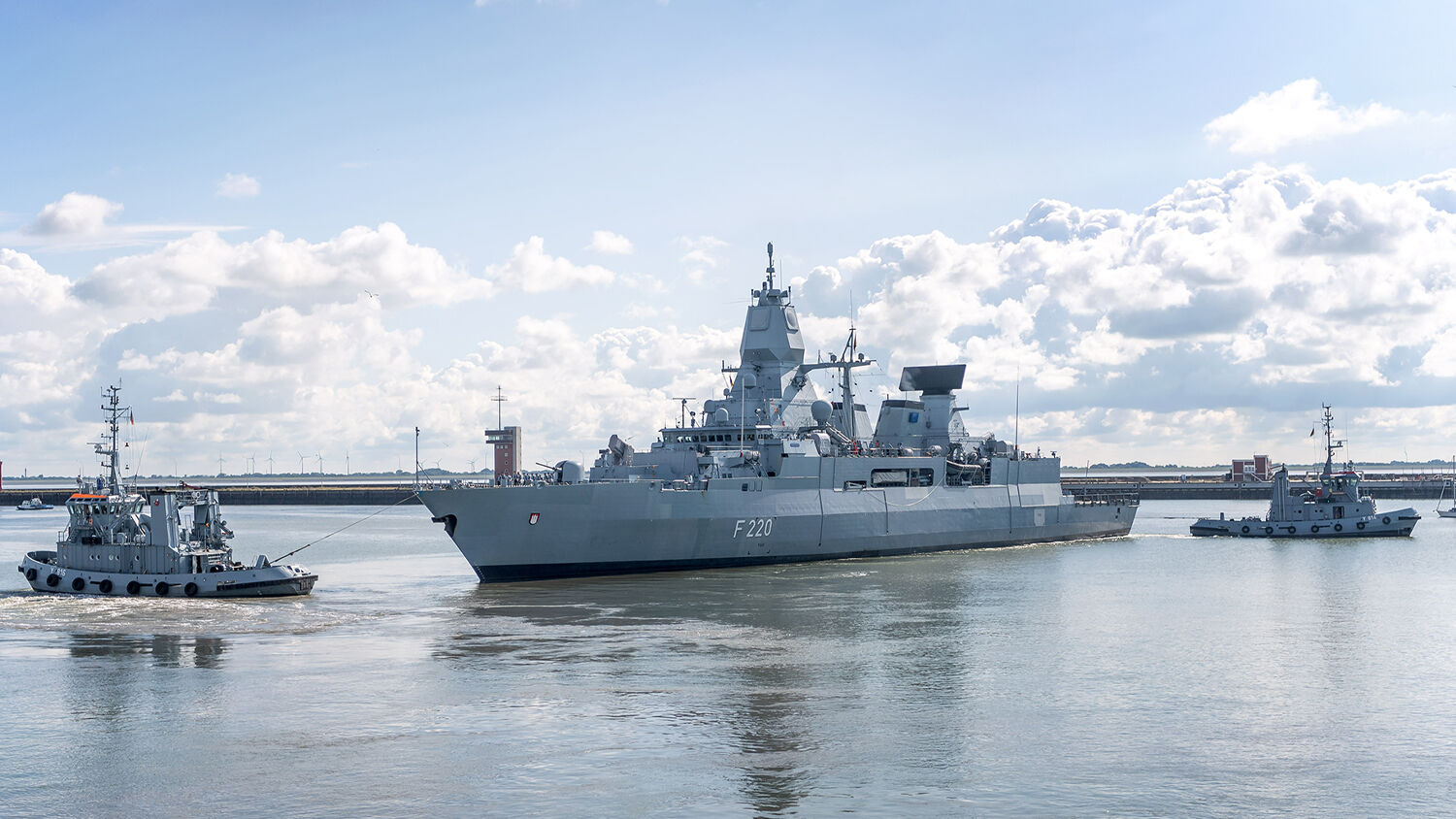
Germany Sends Frigate to Libyan Waters
On August 4, the German frigate Hamburg departed from its home base in Wilhelmshaven to its new mission in the European Union Naval Force Mediterranean Operation irini (eunavfor med irini). The frigate will take over the second German contingent for this EU military operation, reported the German military on its website. Libya is on the verge of becoming a second Syria. Germany wants to prevent another war-torn nation at Europe’s doorstep, but it is clashing with the interests of another major force in the region.
In January, Germany made Libya one of its geopolitical priorities. On January 16, German Foreign Minister Heiko Maas visited Benghazi. On January 19, various government officials gathered in Berlin to discuss the situation in Libya. “These events mark what could be the beginning of an expanded German role in Libya,” Trumpet contributor Daniel Di Santo wrote in “Why Is Germany Leading the Push for a Libyan Peace Process?”
Germany is concerned about Libya’s future. Since the beginning of the irini mission, Germany has been involved with a P-3C Orion maritime reconnaissance aircraft. On May 7, the Bundestag mandated the participation of its own armed forces, including 300 soldiers to enforce an arms trafficking embargo.
Germany is now increasing its participation by sending a frigate. “The Sachsen-class frigate is the first ship of the German Navy to take part in the mission,” Bundeswehr.de noted. “The main task of the ship and the crew is to contribute to the most important operational goal: to implement the arms embargo against Libya imposed by the United Nations Security Council” (Trumpet translation throughout).
The German frigate will collect information about the illegal export of oil and petroleum products from Libya and will support the Libyan Coast Guard and Navy.
“We are facing an assignment that will pose new challenges for the ship and crew in several ways. Here and there, the Frigate Hamburg will certainly have to do pioneering work on difficult political and operational terrain,” explained the ship’s commander, Capt. Jan Fitschen.
One of the new challenges Fitschen mentioned is the coronavirus, with the new safety measures the crew has to take. But the main new challenge “is likely that the nato partner Turkey, the United Arab Emirates and Russia, among others, are considered to be countries that allegedly violate the UN arms embargo,” n-tv.de noted.
The European Council on Foreign Relations reported on November 20, “The German government is widely seen as the perfect arbiter in the conflict, given its neutrality, its good relationships with all involved.”
In “Can Germany Stop a Second Islamist Revolution in Libya?” Trumpet contributor Warren Reinsch wrote:
Ever since [former Libyan dictator Muammar Qadhafi] was ousted by a Western bombing campaign in 2011. Libya has been devastated by civil war. Fearing an Islamic resurgence, Germany is working behind the scenes to stabilize the Libyan theater. This intervention is leading to a clash between Europe and radical Islam. … Many Germans are divided about intervening in Libya, but Germany’s worsening migrant problem is the biggest rationale for intervention. German Chancellor Angela Merkel fears that if Germany does not intervene, Libya is at risk of becoming a second Syrian crisis.
This is not the first time Germany’s interests have clashed with other forces in North Africa. Libya was a major battle ground in the last world war.
In “Mediterranean Battle Escalating Into World War III!” Trumpet editor in chief Gerald Flurry recounted Germany’s attempt to control North Africa in World War ii. German Gen. Erwin Rommel arrived in Libya on Feb. 12, 1941, and quickly conquered large territories. The British put an end to German advances at the time. After recounting that history, Mr. Flurry noted:
Now, 70 years later, times are different. Instead of the World War ii Allied powers being in control, North Africa and the land around the Red Sea are governed by unstable dictatorships and radical Islamic terrorist groups that seek to bring the fight to Europe!
But this time around, Germany has learned its lesson.
It will not allow Europe’s soft underbelly to be controlled by its enemy. For this reason, Germany is moving once again to conquer the Mediterranean.
Read Mr. Flurry’s article “Mediterranean Battle Escalating Into World War III!” to learn who Germany’s enemies are in the region and how the Bible reveals that the confrontation will end.
Daniel 11:40 prophesies: “And at the time of the end shall the king of the south push at him: and the king of the north shall come against him like a whirlwind, with chariots, and with horsemen, and with many ships; and he shall enter into the countries, and shall overflow and pass over.” The king of the north refers to a rising German-led military power; the king of the south refers to radical Islam, led by Iran. This prophecy is for the time of the end. We are seeing events take shape today that are leading to this coming clash.
Read Mr. Flurry’s free booklet The King of the South for a full explanation of what Germany’s interest in the region is and why it will intervene to confront its enemies.
